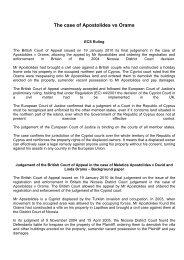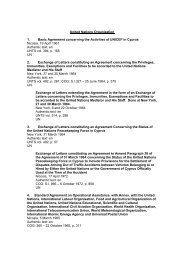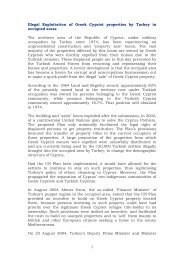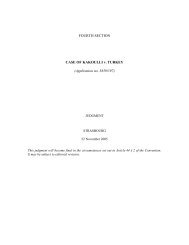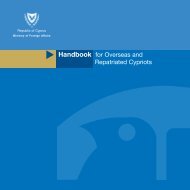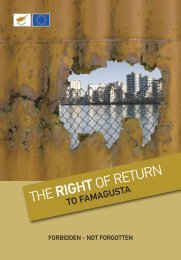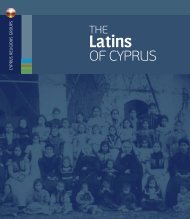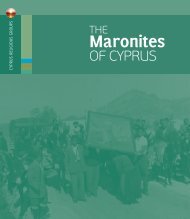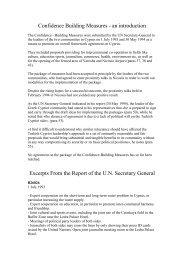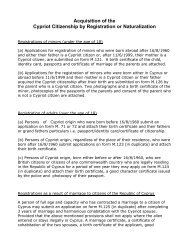Myra Xenides- Arestis v. Turkey
Myra Xenides- Arestis v. Turkey
Myra Xenides- Arestis v. Turkey
You also want an ePaper? Increase the reach of your titles
YUMPU automatically turns print PDFs into web optimized ePapers that Google loves.
XENIDES-ARESTIS v. TURKEY DECISION 41seek to rely upon the Law. It is thus necessary to consider the practicaleffectiveness and accessibility of the administrative and judicial “remedies”in the “TRNC” rather than viewing them simply as a matter of theoreticalpossibility.The Cypriot Government aver that it is clear that the practical effect ofthe Law is to hinder Greek Cypriots property owners from having effectiveaccess to the Court, whereas the circumstances in which it was introducedindicate that it is intended to exert unfair pressure upon such owners toacknowledge the legality of the “expropriation” and the new regime as theprice of obtaining some compensation for the breaches of Conventionrights. They submit that it would be wholly inconsistent with the judgmentsin Loizidou v. <strong>Turkey</strong> and Cyprus v. <strong>Turkey</strong> (op. cit.) for the Court to find, asthe Government suggest, that a political solution constitutes an “adequateand effective remedy” under Article 35 of the Convention. The Court hasalready recognised that the property situation in Cyprus is not one wherepolitical and legal solutions are mutually exclusive (Loizidou, Article 50,op. cit., § 26). In their opinion, there is nothing to preclude or inhibit theCourt's determination of the property claims as matters of law, rather thanpolitics, against a background where political negotiations are or may beconducted.The Cypriot Government refer to the inequality in the treatment by theLaw to displaced Greek Cypriots, such as the applicant, as compared withTurkish or “TRNC” citizens contrary to Article 14 of the Convention. Theyargue that Turkish or “TRNC” citizens who own property in the “TRNC”falling with Article 159 (1) (b) of the “TRNC Constitution” are in ananalogous or relevantly similar position to displaced (or indeed other) GreekCypriots who also own property in the “TRNC”. However, they note thatthe rights that can be invoked and relied upon by the two groups are, widelydifferent. Article 36 of the “TRNC Constitution” contains generalprovisions relating to property rights. These provisions are confined toevery “citizen” rather than to every person (which would include GreekCypriots). Accordingly, the Cypriot Government maintain that the only“property rights” recognised by the “TRNC” in relation to Greek Cypriotsare those set out in the “Law”. Further, they note that there are significantdifferences of substance and procedure between Article 36 of the “TRNCConstitution” and the Law: for example, Article 35 of the “TRNCConstitution” provides that the property rights of Turkish and “TRNC”citizens can be restricted only by law and where it is in the public interestand that “just compensation” is payable for restrictions or limitations whichmaterially decrease the economic value of the property. These rights areabsent from the Law, and cannot therefore be enjoyed by non-citizens suchas the applicant.The Cypriot Government conclude that there is no objective andreasonable justification for the difference in treatment meted out to





